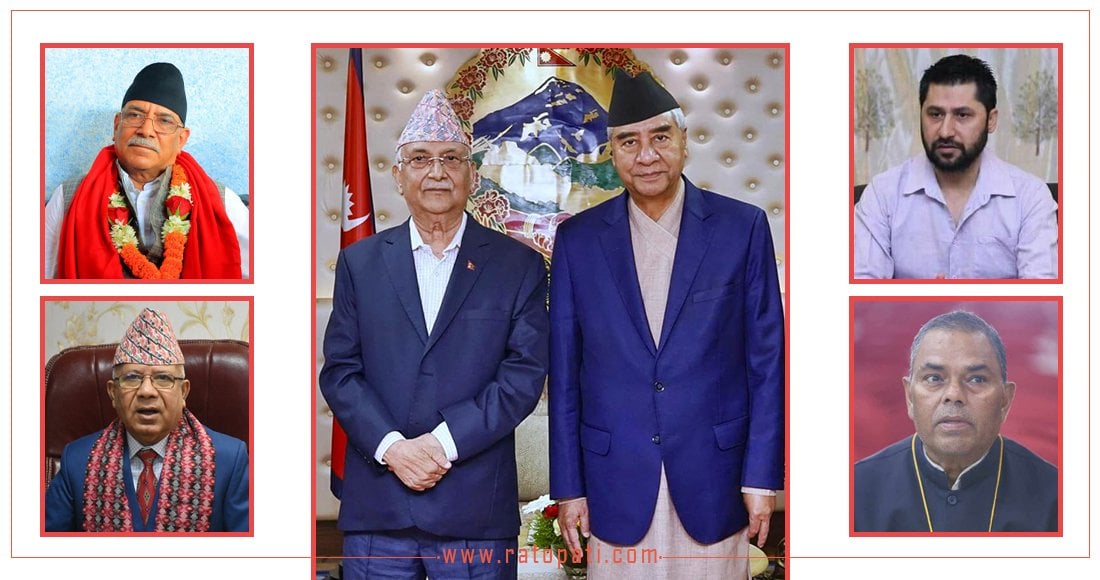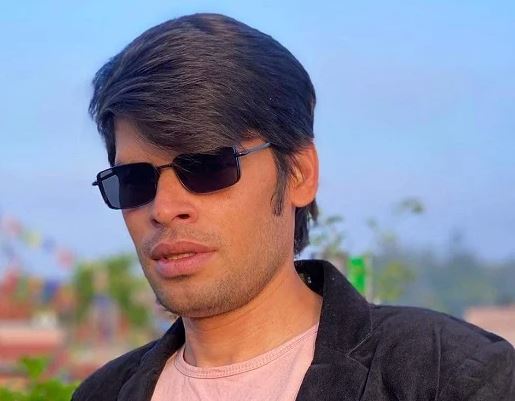Opposition parties gear up to form coalition against government

Kathmandu, September 24 — Opposition parties are engaged in internal preparations to form a coalition against the government led by the Nepali Congress and the CPN-UML. Following the agreement on seven points, including constitutional amendments on July 1, the ruling coalition has been pushing forward with plans to overpower the opposition.
The main opposition party, the CPN (Maoist Center), has concluded that the government's initial inclination is to undermine the anti-corruption campaign and impose regression through constitutional amendments. After serious discussions in their internal meetings regarding party structure and the current political situation, the Maoists are preparing to present a resistance program based on an assessment of the work done by the KP Oli government in its first hundred days. This period marks the first hundred days of the current government in the first week of November.
In the preparation for the coalition, the Maoists and the CPN (Unified Socialist) party are accusing the Oli government of obstructing the anti-corruption campaign initiated by the previous government rather than maintaining good governance. The Maoists plan to convene a central committee meeting shortly after Dashain, which will discuss unity with like-minded parties and devise a strong program of resistance against the government from both parliamentary and street fronts.
“We are currently in the study phase. After a hundred days, we will draw conclusions and move forward. The circumstances surrounding nationalism, democracy, and public livelihoods pose challenges that we will address with a special program aimed at strengthening our parliamentary and street movements against the government,” spokesperson Agni Prasad Sapkota stated.
Analyzing the government's activities so far, he noted that it appears to be moving towards regression. He accused the government of prioritizing the protection of corrupt individuals rather than addressing corruption itself.
Following the loss of power, the Maoists held a serious discussion in their standing committee meeting. They have recently completed a provincial-level advisory committee meeting and are strategizing to consolidate support from socialist alliances and friendly forces. The Maoists are also preparing for immediate unity with the Mahindra Raya Yadav group, a splinter faction from Baburam Bhattari led Nepal Samajwadi party and with the CPN led by Biplab. They have agreed to form a broad leftist coalition to oppose the government.
The Unified Socialist party seems to be adopting a wait-and-see approach regarding the Oli government. After the 10th general convention held in the second week of July, a new team has been formed under the leadership of Madhav Nepal. Following the division of responsibilities among leaders, they appear ready to take strong action against the government by forming a broad leftist coalition. The Unified Socialist is already part of the socialist front, and discussions are ongoing to develop public engagement programs across all provinces.
There have been charges of large-scale corruption charges involving Deuba and Oli and the Congress and UML are trying to cover them up, according to spokesperson Jagannath Khatiwada.
“Focusing solely on cases linked to the Rastriya Swatantra Party (RSP) does not suffice. The government has displayed similar behaviors in the Giribandhu Tea Estate, Bhutanese refugee case, gold smuggling case, and revenue fraud case. If they continue to act like this, it will further disappoint the public,” he stated.
The two major parties, Congress and UML, have claimed that their actions are creating a lack of opposition in the country, leading to authoritarianism. Khatri emphasized that it is natural for opposition parties to form a coalition against the government at this point.
“To establish a strong opposition, one of either Congress or UML should remain out of power. They have deviated from the fundamental principles and culture of democracy,” Khatiwada remarked, “The fight against corruption is also a fight within their own parties. Corruption exists both inside and outside the party, in the bureaucracy, army, and police. Battling against these individuals is not a trivial matter. It is essential to oppose such tendencies and form coalitions.”
Tension within RSP
The parliamentary inquiry committee led by Surya Thapa has submitted a report to the government that does not directly label Lamichhane as guilty but indicates that disciplinary action will be initiated. Chhabilal Joshi, business partner of Rabi Lamichhane at Gorkha Media, has been detained on the order of the Kaski District Court to advance the investigation. Lamichhane, directing leaders and activists to remain alert, has also recalled high-ranking officials who were on a visit to China.
Following the government’s decision to initiate action against its own chairman for mismanagement of cooperative savings, the Rastriya Swatantra Party appears anxious. After the arrest of former DIG Chhabilal Joshi for cooperative fund mismanagement, a large number of leaders and activists gathered at the party office in Banasthali.
Although the parliamentary inquiry committee led by Surya Thapa did not directly incriminate Lamichhane, it has prepared a report for government action. The main culprit, GB Rai of Gorkha Media, remains at large.
Joshi has been detained as part of the investigative process, and Lamichhane has called for vigilance among leaders and activists, even recalling those on a trip to China.
Chief Whip Santosh Pariyar stated that internal discussions are ongoing about how to proceed in the coming days. “We are currently in an internal meeting. The decision on how to move forward will be made in this meeting,” he said.
RSP leaders have indicated that collaboration with the Maoists and other opposition parties against the government may be possible.
Support for the government from JSP
Meanwhile, following the Maoists' return to the peace process, the Janata Samajwadi Party (JSP), led by Upendra Yadav, which had supported Prachanda for 18 years, has clarified that there will be no immediate coalition against the government. While leaders from JSP Nepal, along with major parties like Congress, UML, and high-ranking Maoist leaders, have participated in discussions against corruption and irregularities, they maintain that disciplinary actions must be taken.
The JSP has positioned itself on the side of the ruling coalition since its division. It clarified that there would be no immediate coalition against the government.
Leader Manish Suman believes that the government’s latest actions against cooperative fund mismanagement have sparked hope among the public. “After receiving the report from the cooperative inquiry committee, the government has taken an aggressive stance. Some have been arrested by the police. The state belongs to everyone. There should be no bias or prejudice against anyone. In such circumstances, even if major leaders from Congress, UML, or JSP Nepal are implicated, they should not be spared. These criminals must face strict punishment,” he stated. “As long as the coalition parties, Congress and UML, have reached an abstract seven-point agreement regarding constitutional amendments, we will not proceed until a concrete proposal is presented. Therefore, there is no need for any march against the government at this time.”
Suman emphasized that the country's most significant problem is an unstable government and stressed the need for the current government to last in the long term. If constitutional amendments are to be made, he urged the government to immediately engage in discussions with opposition parties.










Leave Comment